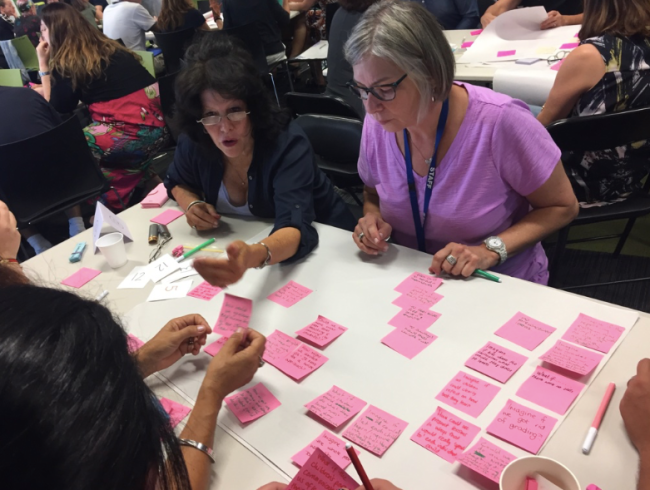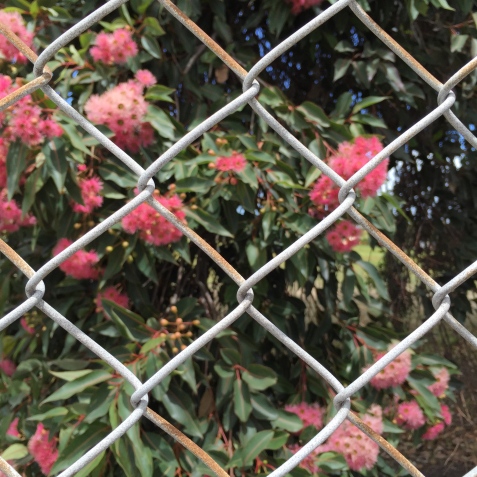Start with the child, not the curriculum. Schooling is currently organised the wrong way around. The curriculum becomes the structure for the learning and is delivered via a timetable. Yet we know that every child is different so there cannot be a ‘one-size-fits-all’ approach to schooling. Learning and teaching should be designed around each child’s learning strengths and needs. In this way, the curriculum is the reference point, not the blueprint.
On the first day back after the summer break, we introduce our 2017 focus to our team of educators:

Check in: Choose a word that describes one of your strengths and then one you would like to work towards.
Sharing the justification for our choices serves both as an ice breaker in the cross campus, multi-year level groups, and as a provocation to think about and value the diversity amongst us.

A provocation: Watch till 2:38 and create a title that sums up the essence.
The video provokes a range of responses and lively conversation ensues. To what extent are we guilty?
Pre-thinking: Create an image that represents your first thoughts about the notion of starting with the child.
There are rich conversations about the possible connotations of the phrase and an exchange of ideas about what it might mean to us.


An appreciative inquiry…
Discover: What are we already doing?
It’s important to acknowledge the many ways in which we already start with the child. This activity creates a space for cross pollinating ideas and sharing practice.

Dream: What are the possibilities for taking it further?
Teachers are encouraged to imagine. What if…? How might we..? Could we…? How would we…?


- How do we ensure we cater for diverse needs and interests?
- How might we rid ourself of the idea of a controlled classroom?
- Imagine if we didn’t have grades and reports.
- What if we could get rid of Naplan?
- What if we had one free choice unit of inquiry every year?
- What if the children wrote the curriculum?
- What if we didn’t have timetables?
- How might we increase opportunities for cross age learning?
- How might we build a culture where all children value each other?
- How can we ensure social and emotional wellbeing of every child?
- What if there were no bells interfering with learning?
- How might we help every child to believe in himself?
Design: What will you do?
We ask teachers to record something they will start working on right away.
What will you do? Try out? Think about? Explore? Change? How will you ensure that you start with the child?





